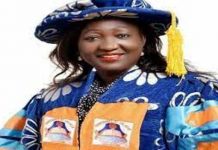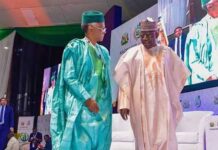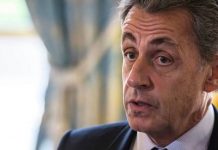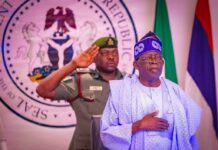Former President Goodluck Jonathan yesterday did a reflection on Nigeria and stated matter-of-factly that the country’s founding fathers had no doubt won independence for the country but were subsequently neck-deep in ethnic and identity politics instead of integrating the people into a proper nation.
Jonathan stated this in his remarks at a national dialogue organised to mark the 60th birthday of and presentation of 21 books written by the director with the Centre for Alternative Policy Perspectives and Strategy (CAPPS), Prof Udenta Udenta in Abuja yesterday.
Jonathan who was the chairman of the event said Nigeria was polarised especially during the early political party formation adding that the parties were mostly regional.
He said he was not blaming the country’s founding fathers but maintained that they operated as individuals and failed to foster national cohesion.
“Have we been able to convince ourselves whether we are a state or a nation? If we are a country and a state, how do we become a nation?
“Of course, if you have read some of the comments of our former leaders, someone like (Obafemi) Awolowo made it very clear that there was no nation called Nigeria. That it is a geographical entity, it is a country, it is a state, it has laws but there is no nation.
“The country was so polarized especially during the early political party formation and the parties were regional parties.
“There was no sense of commitment to integrate Nigeria into an entity that you can say yes, this is a nation with core values, common philosophy and people will be patriotic to that nation.
“Most of the parties that time belonged to regions and there were no alliances for the purpose of ruling the country,” he said.
He compared Nigeria with “a country like Tanzania” but stated that the country’s leader during independence, President Julius Nyerere made his vision clear to make Tanzania a nation.
He also said both countries and Christian- and Muslim-dominated.
‘‘They have different tribes, maybe not as many as Nigeria but one nation was at the height of his thoughts,” he said.
He further stated that in spite of the numerical strength and popularity of the two faiths, Nyerere was able to champion a one party state to prevent political parties dissolving into their ethnic and religious cocoons as he worked hard with other nationalists to build Tanzania into the nation is has become.
“He (Nyerere) made sure that every person from Tanzania speaks that (one) language; those who go to primary, secondary and tertiary schools quickly adhered to this as Nyerere made education compulsory.
“So, you hardly see somebody who didn’t get at least basic knowledge of the language in what we call the first nine years of school education. At that level, you communicate in Swahili,” he added.
Jonathan recalled that his modest attempt at nation building was the driving force behind the 2014 national conference which was designed to address some of the fault lines that have kept Nigerians apart.
He said if the recommendations of the 2014 conference were not only adopted but implemented, “we will not say we have a country called Nigeria; we will not say we have a state called Nigeria, we will also say we have a nation called Nigeria.”
*With Vanguard report


























































